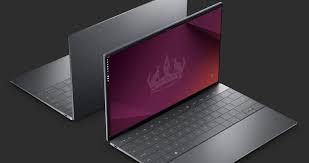Buying a laptop in 2025 can feel overwhelming. With so many options, specs, and marketing buzzwords, it’s easy to get lost. This guide will walk you through the key things you need to know before making a decision, in plain language, without unnecessary jargon.
Step 1: Know Your Purpose
The first thing you should decide is what you’ll use the laptop for. Someone who just wants to browse the internet, write documents, or watch movies doesn’t need the same machine as a video editor, gamer, or software developer.
Students and office workers should focus on lightweight laptops with good battery life.
Creative professionals need strong performance, accurate displays, and plenty of storage.
Gamers should prioritize graphics power and cooling.
Travelers should look for thin, portable designs that don’t weigh much.
Step 2: The Key Specs Explained
When looking at laptops, here are the main things you should pay attention to:
Processor (CPU): This is the brain of the laptop. For most people, a mid-range Intel Core i5 or AMD Ryzen 5 is more than enough. If you do heavy tasks like video editing or 3D work, go for Core i7/i9 or Ryzen 7/9. Apple’s M-series chips (like M3 or M4) are excellent if you’re in the Mac ecosystem.
RAM (Memory): This is what allows your laptop to run multiple programs smoothly. In 2025, 16 GB is the sweet spot. 8 GB feels outdated, and 32 GB or more is only necessary for advanced users.
Storage (SSD): Forget hard drives; SSDs are much faster. Go for at least 512 GB if you plan to store photos, videos, or large files. If you only use cloud storage and light apps, 256 GB may work.
Display: Look for Full HD (1080p) as a minimum. If you do creative work or just want sharper visuals, consider 2K, 3K, or even 4K displays. OLED screens offer better color and contrast. Gamers should look for high refresh rates (120 Hz or higher).
Graphics (GPU): If you’re not gaming or editing videos, you don’t need a powerful GPU. Integrated graphics from Intel, AMD, or Apple will handle daily use just fine. If you’re gaming or doing creative work, look for laptops with dedicated GPUs from NVIDIA or AMD.
Battery life: A laptop is only as good as its battery if you’re on the move. Apple laptops generally lead here, but many Windows ultrabooks now last 8–12 hours on a single charge.
Ports and connectivity: Think about what you’ll plug in. Do you need USB-A ports for older devices, or just USB-C/Thunderbolt? Do you use SD cards, external monitors, or gaming accessories?
Step 3: Build Quality and Comfort
It’s not just about specs — a good laptop should feel solid and comfortable to use. Pay attention to:
Keyboard quality: Especially important if you type a lot.
Trackpad responsiveness: A bad trackpad can ruin the experience.
Durability: Metal builds (like aluminum or magnesium) are sturdier than cheap plastic.
Webcam and microphone: Video calls are part of daily life now, so don’t ignore them.
Step 4: Think About Longevity
Some laptops allow upgrades (RAM and storage), while others are locked down. If you want a laptop that lasts many years, go for one that can be upgraded or has higher specs from the start.
Also, check how easy it is to get repairs or replacement parts in your country. A sleek ultrabook may look good, but if you can’t fix it when it breaks, you’ll regret it.
Step 5: Popular Choices in 2025
Here are some categories and good picks:
Everyday use and students: MacBook Air (M3/M4), Lenovo Yoga series, HP Pavilion, ASUS ZenBook.
Creative professionals: MacBook Pro (M3/M4 Pro), Dell XPS, Razer Blade, ASUS ProArt.
Gamers: ASUS ROG Zephyrus, MSI Raider, Alienware, Lenovo Legion.
Budget friendly: Acer Aspire, HP Chromebook Plus, entry-level ASUS VivoBook.
Repairable and upgradeable: Framework Laptop 13 or 16.
Step 6: Smart Buying Tips
Don’t buy the cheapest laptop — it usually won’t last.
Don’t overspend on features you’ll never use.
Always read real user reviews, not just spec sheets.
Check warranty and after-sales service in your region.
If possible, test the keyboard, screen, and build in person before buying.
Final Thoughts
The best laptop for you in 2025 depends on your needs, not just the specs. Decide what matters most: portability, power, or price. Once you know that, it’s much easier to find the right match. A little research now will save you years of frustration later.



